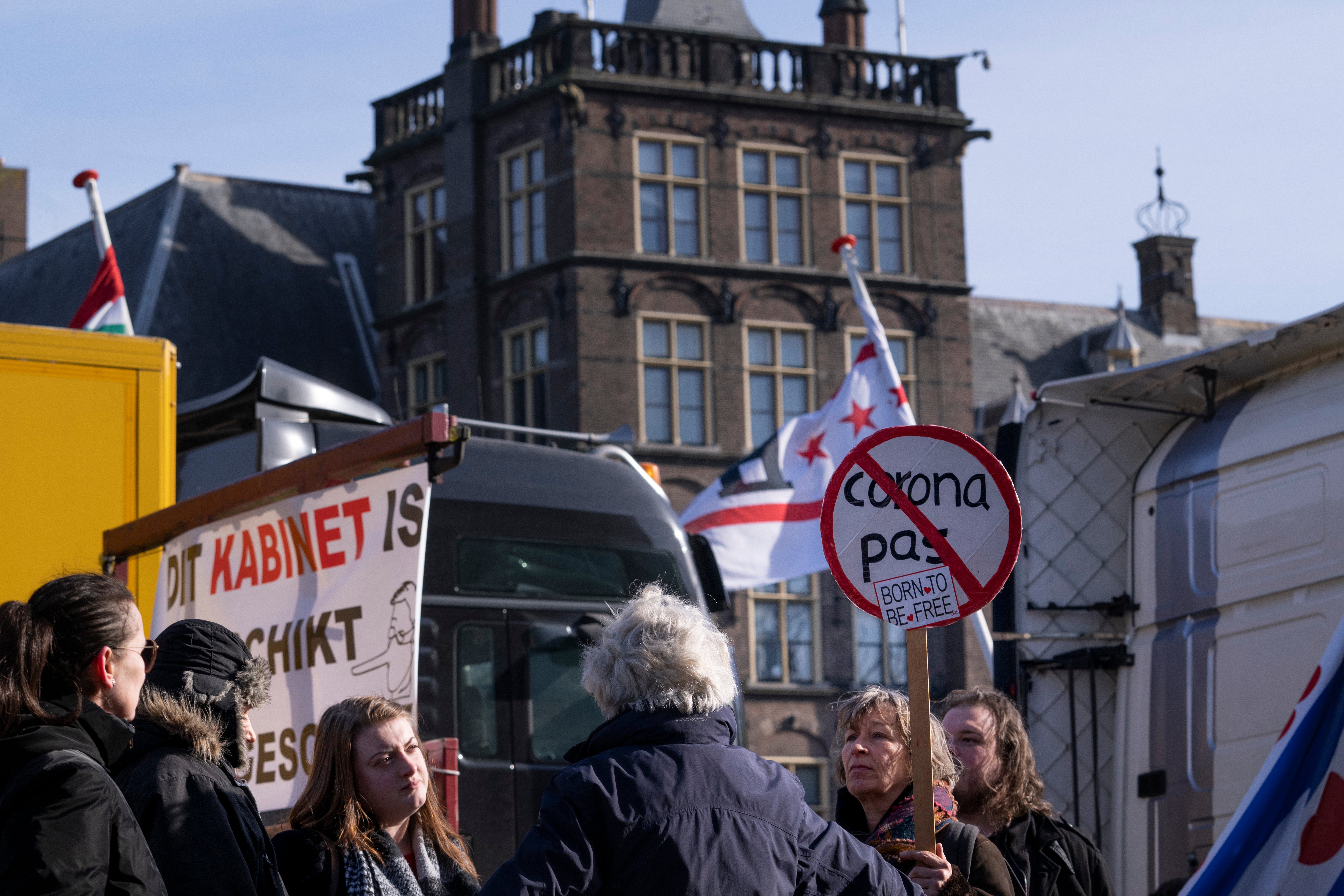Dutch govt phases out virus restrictions as cases drop
The Dutch government says it will scrap virtually all its remaining coronavirus restrictions by the end of the month as infection rates begin to decline and pressure on health care services eases

The Dutch government announced Tuesday that it will scrap virtually all its remaining coronavirus restrictions by the end of the month as infection rates begin to decline and pressure on health care services eases.
“The country is opening up again,” Health Minister Ernst Kuipers said.
The Dutch are following neighboring Belgium and other European nations in easing restrictions as the continent increasingly looks for ways of co-existing with the virus without the economic and social damage wreaked by lockdown measures.
Earlier Tuesday, the Dutch national public health institute said in its weekly update that new COVID-19 cases declined by 22% over the past seven days and ICU admissions fell 28%.
“It looks like we are at or over the peak,” Kuipers said.
The government late last year imposed some of Europe's toughest lockdown measures amid fears that a surge in infections sparked by the omicron variant could overwhelm hospitals. But while cases shot up, intensive care unit admissions fell, allowing authorities to relax restrictions that had forced bars and restaurants to close over the lucrative Christmas holiday season.
Hospitality and other public venues have been open for weeks with limited hours. Nightclubs have remained closed, sparking anger among owners and clubbers.
Lockdowns and vaccination campaigns have caused anger and resentment among a small section of society and sparked regular protests, some of which have erupted into violence.
Kuipers said the restrictions would be eased in three steps.
With immediate effect, the government dropped its advice to always work from home and instead urged people to work from home half the time. It also scrapped its advice to restrict the number of visitors people allow into their homes to four per day.
Beginning Friday, bars, restaurants, theaters, cinemas and other public venues will be allowed to stay open until 1 a.m. instead of the current order to close at 10 p.m. Visitors to such venues will no longer have to remain seated and wear a mask when they walk around.
A week later, pre-pandemic opening hours will apply to all public venues and a COVID-19 heal pass will no longer be necessary to get access to venues. Social distancing and mask mandates will be dropped with the exception of mask wearing on public transport and at airports.
Kuipers said the country's current pandemic situation means such measures are no longer necessary.
“Corona cast a shadow over our lives. Corona made us lonely. Corona sometimes put deep divisions between us,” he said. “Fortunately, we are now in another phase.”
The Netherlands has reported over 21,900 COVID-19 deaths in the pandemic.
___
Follow all of AP’s pandemic coverage at https://apnews.com/hub/coronavirus-pandemic
Bookmark popover
Removed from bookmarks